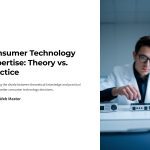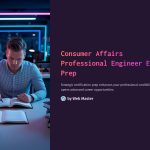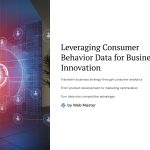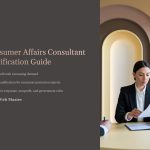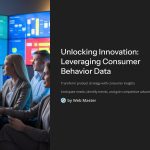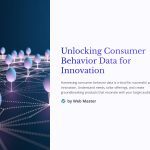 In today’s rapidly evolving consumer landscape, the ability to distinguish between theoretical knowledge and practical skills in the realm of consumer technology expertise has become increasingly important. Whether you’re navigating product safety laws, handling consumer claims, or designing user-centric products, this distinction can define the success or failure of real-world applications. Particularly in fields like certified consumer engineering, understanding both perspectives helps bridge gaps between compliance, usability, and innovation. With new legislative changes and a surge in consumer awareness, businesses and professionals alike must adopt a more hybrid approach that leverages the strengths of both domains to remain competitive and credible.
In today’s rapidly evolving consumer landscape, the ability to distinguish between theoretical knowledge and practical skills in the realm of consumer technology expertise has become increasingly important. Whether you’re navigating product safety laws, handling consumer claims, or designing user-centric products, this distinction can define the success or failure of real-world applications. Particularly in fields like certified consumer engineering, understanding both perspectives helps bridge gaps between compliance, usability, and innovation. With new legislative changes and a surge in consumer awareness, businesses and professionals alike must adopt a more hybrid approach that leverages the strengths of both domains to remain competitive and credible.

Theoretical Expertise: Structured Knowledge and Legal Frameworks
Theoretical knowledge in consumer technology often forms the foundation of professional qualification and academic development. It includes laws, safety standards, statistical methods, and principles of design and ergonomics. These concepts are generally acquired through formal education, certification programs, and academic research.
This expertise is essential for understanding consumer rights, industry regulations, and the formal methodologies used in product evaluation. For example, knowledge of ISO standards or the Korean Product Liability Act (제품책임법) equips experts to assess risks in product design and functionality.
However, theoretical knowledge can be rigid and slow to adapt to changes in consumer behavior or emerging technologies. Its strength lies in providing a standardized, comprehensive understanding of what should happen in ideal conditions, rather than what does happen in the marketplace.

Practical Expertise: Fieldwork, Case Analysis, and Consumer Interaction
On the other hand, practical expertise is honed through hands-on experience. It involves applying theoretical knowledge to real-world scenarios such as product recalls, consumer complaints, field inspections, and mediation of consumer disputes. Practitioners may work for consumer advocacy groups, government agencies, or private firms.
For instance, a field engineer investigating an air purifier malfunction must not only understand its structural components and safety regulations but also interpret consumer usage patterns and environment-specific variables. They often develop soft skills like empathy, communication, and decision-making under pressure—areas not typically emphasized in academic settings.
This real-time learning curve allows for quicker adaptation to trends and immediate problem-solving but can suffer from inconsistent quality or limited applicability across broader legal frameworks if not supported by strong theoretical grounding.

Bridging the Gap: Hybrid Models for Certification and Practice
In recent years, the industry has begun to recognize the importance of hybrid models that integrate both theoretical and practical expertise. Certifications like “Consumer Technology Professional Engineer” in Korea now require applicants to not only pass rigorous exams but also complete field training.
Universities and institutions are also modifying curricula to include internships, simulations, and case studies. This approach encourages students to develop contextual intelligence—the ability to adapt learned knowledge in unpredictable real-world situations.
Moreover, government-led programs are supporting professionals through on-the-job workshops and cross-disciplinary training, reflecting a shift towards more holistic education and credentialing systems.

The Role of Technology and Data in Modern Expertise
Technology has significantly changed how theoretical and practical knowledge are both acquired and applied. Advanced analytics tools, machine learning, and real-time customer feedback platforms allow professionals to combine empirical data with theoretical insights to optimize consumer outcomes.
A tech-savvy consumer professional can now analyze product defect trends using AI, predict risk with greater accuracy, and provide feedback loops that inform design and policy. This digitization of field data elevates the value of hands-on experience while also reinforcing academic models.
Organizations embracing digital transformation are seeing better alignment between R&D, quality assurance, and customer service—resulting in fewer disputes, faster resolutions, and enhanced trust.

Legal Accountability and Ethical Standards
Ethics and accountability are central to both theory and practice, but they are expressed differently in each context. Theoreticians may focus on compliance, disclosure obligations, and statistical validity, while practitioners grapple with real-time decision-making, whistleblowing, and emotional labor.
Legal systems increasingly demand professionals be both technically knowledgeable and ethically resilient. A growing number of jurisdictions now require continuing education in ethics and law for license renewal, signaling the importance of sustained moral integrity alongside skill development.
This also includes the responsibility to avoid harm, act in the consumer’s best interest, and report faulty practices—even if it contradicts commercial interests.

Final Thoughts: Choosing the Right Expertise for the Task
Whether you’re hiring a consultant, training a team, or pursuing certification, knowing when to prioritize theory over practice—or vice versa—is key. For policy development and systemic change, theoretical insight is indispensable. For quick decision-making, consumer satisfaction, and crisis response, practical know-how often delivers faster, more effective results.
Ultimately, the best outcomes arise when both types of expertise inform each other. Smart professionals and organizations don’t choose between them—they integrate them. And with technology blurring the lines between classroom and field, future experts must be ready to operate in both realms with confidence and agility.
*Capturing unauthorized images is prohibited*


